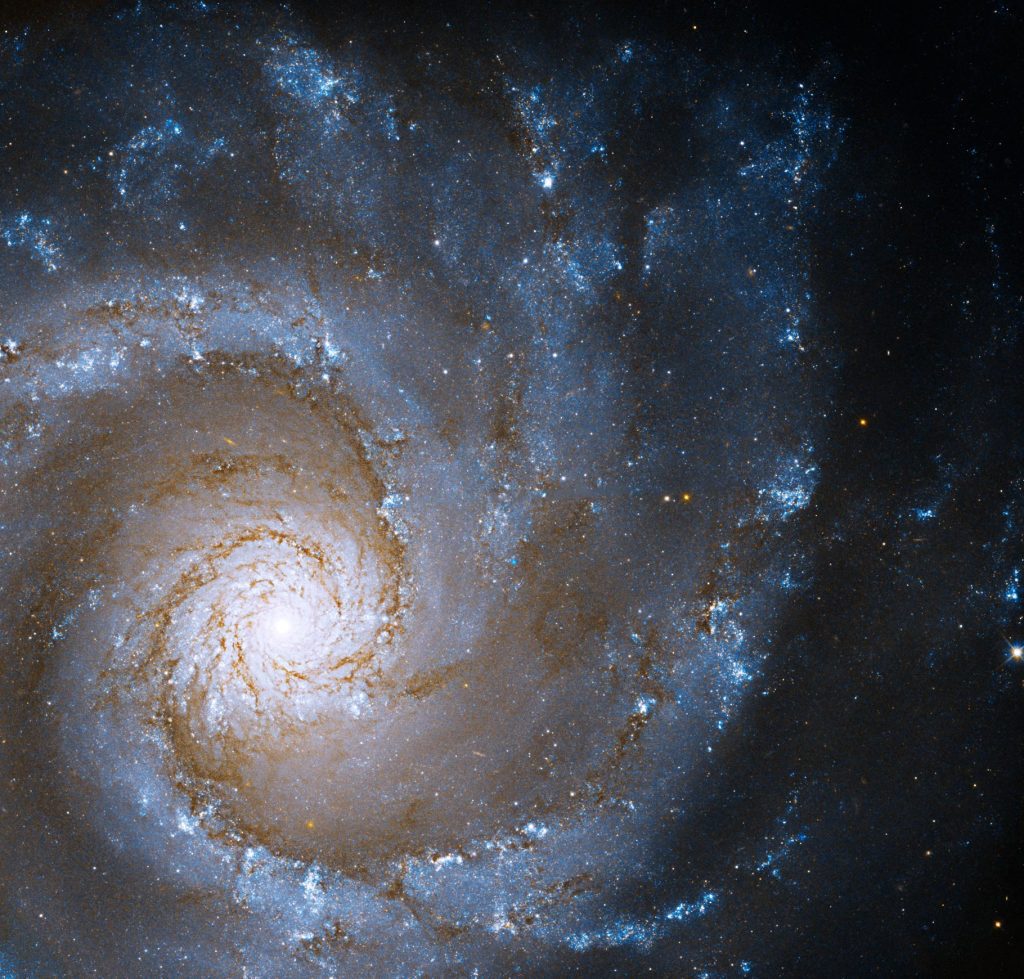

Zdjęcie NGC 3631 z Teleskopu Kosmicznego Hubble’a, dużej spiralnej konstrukcji, znajdującej się w odległości około 53 milionów lat świetlnych, w kierunku konstelacji Wielkiej Niedźwiedzicy. Źródło: NASA, ESA, A. Filippenko (Uniwersytet Kalifornijski – Berkeley), dr. Piasek (Uniwersytet Arizony); Przetwarzanie obrazu: do. Cooper (NASA Goddard/Katolicki Uniwersytet Ameryki)
To zdjęcie pochodzi z[{” attribute=””>NASA’s Hubble Space Telescope features the Grand Design Spiral, NGC 3631, located approximately 53 million light-years away in the direction of the constellation Ursa Major. The “arms” of grand design spirals appear to wind around and into the galaxy’s nucleus.
In contrast to multi-arm and flocculent spirals, which have softer structural elements, a grand design spiral galaxy has obvious and well-defined spiral arms. A grand design galaxy’s spiral arms stretch clearly across the galaxy through many radians and may be seen over a considerable proportion of the galaxy’s radius.
Close inspection of NGC 3631’s grand spiral arms reveals dark dust lanes and bright star-forming regions along the inner part of the spiral arms. Star formation in spirals is similar to a traffic jam on the interstate. Like cars on the highway, slower-moving matter in the spiral’s disk creates a bottleneck, concentrating star-forming gas and dust along the inner part of their spiral arms. This traffic jam of matter can get so dense that it gravitationally collapses, creating new stars (seen here seen in bright blue-white).
The image uses data collected from Hubble’s Wide Field Camera 3 and Advanced Camera for Surveys. The color blue represents visible wavelengths of blue light, and the color orange represents infrared light.

„Nieuleczalny student. Społeczny mediaholik. Niezależny czytelnik. Myśliciel. Alkoholowy ninja”.

/cdn.vox-cdn.com/uploads/chorus_asset/file/24924650/236780_Google_AntiTrust_Trial_Custom_Art_CVirginia__0000_4.png)

/cdn.vox-cdn.com/uploads/chorus_asset/file/25594197/Genki_TurboCharger_Hero.jpg)

More Stories
Kiedy astronauci wystartują?
Podróż miliardera w kosmos jest „ryzykowna”
Identyczne ślady dinozaurów odkryto na dwóch kontynentach